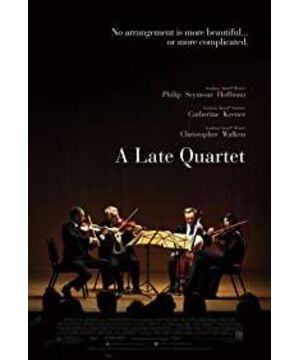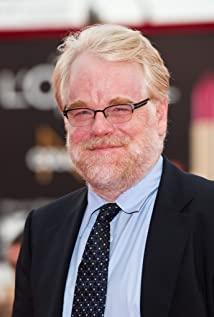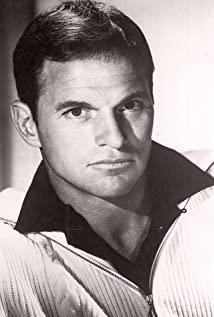The string quartet almost became the emotional outlet of Beethoven in his later years. Beethoven wrote 17 string quartets in his lifetime, of which 6 were composed in the three years before the composer's death.
2020 marks the 250th birthday of Le Saint Beethoven. If Beethoven's spirit in heaven can perceive human affairs, he should be very pleased, because the string quartets he composed in the last years of his life are more and more liked by music fans. Especially in these years, "Beethoven's late quartet works, both in terms of artistic achievements and ideological achievements, have marked that he has entered the highest realm of transcendence", such an evaluation has become a public opinion, so that Beethoven There is such a saying among the fans of QQ: Is there an inescapable sadness simmering in the heart? Listen to a late quartet; still can't resolve it? Then listen to one more song.
Rao is like this, daring to use the "late quartet" to title a film, it can only be said that the director of the film loves Beethoven's late quartet, and has reached the point of hopelessness.
Fortunately, the director of "Late Quartet", Yaron Ziberman, is well aware that for non-music fans, language is easier than notes to get them close to Beethoven's late quartets. Therefore, in the preface, the film borrows The lead actor, cellist Peter, gave a class to conservatory students, briefly introducing a late Beethoven quartet to the audience of "Late Quartets."
"Beethoven Opus No. 131 is the favorite late Beethoven quartet of the poet TS Eliot. It has 7 movements, while string quartets usually have 4 movements at that time. These 7 movements are closely connected, and when played No pauses between movements, no rest, no tuning. Beethoven insisted that the performer do it all in one go, maybe he was trying to find harmony in the chaotic fragments of life, or maybe deafness, loneliness, and looming death left him feeling no Time pauses and even breathing. For us players, playing without pause for a long time will inevitably bring our instruments out of tune to varying degrees, which is very bad. What should we do? Pause? Even if everyone is not in one key, Are you going to finish the performance?" After asking the question, Peter did not give an answer, but asked the students to pick up their instruments and play. Peter wanted his students to find answers in Beethoven's music.
It must be too early for a group of talented, Curtiss School of Music students to experience loneliness and looming death. On the contrary, the Fugue String Quartet led by Peter, on the occasion of the band's 25th anniversary, realized what kind of surprise it would bring to the band after the coherent performance was stopped.
Twenty-five years ago, violinist Daniel negotiated with Peter, the famous cellist at the time, to form a quartet. Considering that he is more than 20 years older than Daniel, Peter thought about rejecting it. However, the addition of another violinist, Robert and his wife Juliet, dispelled Peter's concerns. In a flash, the Fugue Quartet has been established for 25 years. More than 300 concerts have been held all over the world. If nothing else, the band's next itinerary will be Hong Kong and Shanghai... The accident was that when the band was rehearsing Beethoven's No. 131, Peter's vibrato could not keep up with the rhythm. I later learned that it was because he had Parkinson's disease.
Eight months after the completion of work No. 131, Beethoven bid farewell to this world that gave him talent, made him suffer, made him feel love but did not give him a complete love. We can imagine that Beethoven is here. What kind of life code is hidden in this work. 7 movements, in addition to breaking the rule that a string quartet work usually consists of 4 movements, the composer also specially noted on the score that the 7 movements must be played continuously without interruption. Not to mention how much technical difficulty it will bring to the player when playing 7 movements in a row, it is not an easy task to connect only 7 movements with different moods and emotions. What kind of emotional color is poured into the movement: the suppressed pain of the first movement, the joy and cheerfulness of the second movement, the free and unrestrained movement of the third movement, the fourth movement was praised as "naive" by another talented composer Richard Wagner. "Incarnation", the brutishness in the joy of the fifth movement, the desperate plea of the sixth movement, and the angry roar of the seventh movement. I have listened to the Shanghai Quartet and the German Gewandhaus Quartet, and the musicians' completion is perfect. Because of this, a layman like me has seen 40 minutes of uninterrupted performance. Peter, whose left hand is obviously feeling weak, can still hold on?
What Peter didn't expect was that he hadn't announced his intention to quit the group, and the 25-year-old fugue quartet had lost their way. The second violinist Robert has been trying to get rid of the playing reminder marked on the score by the first violinist Daniel, and played Beethoven's work No. 131 freely and indulgently, but Daniel replied: "We are not buying lottery tickets, we need to take risks. . Those notations are the result of repeated thought." Robert, who was choked by Daniel, had to go to his wife Juliet for help, but Juliet once again stood on the side of "conservative" Daniel. After laughing at himself and playing the violin to Daniel's rhythm again, Robert's heart turned upside down: Can he only sit on the second violin seat in his life? Can a marriage that is always at the mercy of the wife survive? The rehearsal had to be stopped because of Peter's illness. When the rehearsal started again, was the cellist still able to hold down Peter? As for the love between Daniel and Juliet's daughter, can it be repaired? ... So, The Late Quartet is not about showing the public how outstanding Beethoven's No. 131 is, through a more accessible medium, the film, but about telling the moviegoers how well-dressed and elegantly played in the spotlight on the stage. The fugue quartet of Beethoven's late quartet, each member's life is mixed. At the end of the film, after overcoming many contradictions and difficulties, the Fugue Quartet once again sat in the center of the stage and elegantly played Beethoven's work No. 131. The seemingly calm Peter, Daniel, Robert and Juliet, who have never tasted Beethoven Emotions and emotions written into the work? Suppressed pain, bright joy, unrestrained freedom, pure innocence, desperate plea...
Only this time, the fugue quartet could not complete his No. 131 in one go as the composer asked, because Peter had no way to follow through - Beethoven was not always in the "Symphony of Destiny" and "The Emperor's Piano Concerto" The Beethoven, more fully Beethoven, should be in his late quartet works and late piano sonatas.
Still thinking Beethoven's late quartets are a bit difficult? The English poet TS Eliot was a deep lover of Beethoven's late musical works, and he even wrote a poem in the name of "Four Quartets". If you still feel that words are more approachable than music, then ask the poet for help: the present and the past / are the present of the future / and the future belongs to the past / if time is eternal / it is irreversible / or the end precedes the beginning / and two. The one who never changes / Before the beginning and the hand of the end / So all things are in the present.
View more about A Late Quartet reviews











